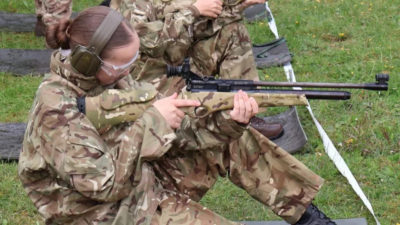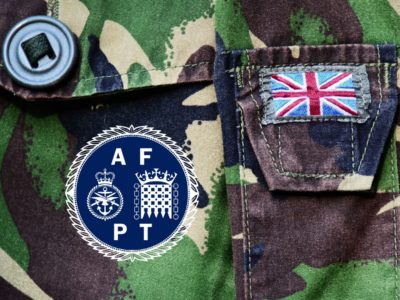Questions for general election candidates about the military and young people
ForcesWatch Comment
Do you agree that the UK should raise its age of recruitment to 18 in line with the international human rights standards established by the UN Committee on the Rights of the Child?
Key points
- The UK is the only country in Europe to recruit 16 year olds into the armed forces.
- Parliament’s Defence Committee and Joint Committee on Human Rights have both requested that the Ministry of Defence conduct a review of the age of recruitment.
- Child rights organisations, charities and churches have all condemned the UK policy of recruiting 16 and 17 year olds.
- A 2014 poll found that 78% of respondents who expressed a view thought the minimum enlistment age for the Army should be 18 or above.
- Research by ForcesWatch indicates that those who join the armed forces at the youngest age are more likely to experience mental health difficulties and to be at risk of injury or fatality.
- Research by ForcesWatch, based on Ministry of Defence figures, indicates that that recruiting from age 16 is very cost-ineffective and a waste of tax payers money.
- Other countries with armed forces of comparable size to the UK’s (as a proportion of population) do not find that recruiting from age 16 is operationally necessary.
Is the promotion of the armed forces and ‘military ethos’ appropriate within education? Should parents be consulted about the involvement of the military at their school?
Key points
- The military visit around 11,000 schools and colleges a year to promote the work of the armed forces and a career in them.
- Under the coalition government, the Department for Education developed a number of policies that aimed to promote ‘military ethos in schools’, including expanding cadets forces into state schools and funding organisations to run military-style activities for pupils at risk of failing. These policies are aimed at schools in areas of disadvantage.
- Over £36 million pounds has been given toward ‘military ethos in schools’ projects since 2012, prioritising military-related provision at the expense of other initiatives that also foster a strong ethos. Peace education and conflict resolution gets little support from central government.
- In 2014 the coalition government sent The British Armed Forces: Learning Resource to every school in England. This promotional document was criticised by educationalists as political interference and as a poor and unbalanced learning resource.
- The Ministry of Defence state that the armed forces do not recruit in schools, specifying that, “no pupil or student is ever ‘signed?up’ or otherwise makes a commitment to become a recruit into the Armed Forces during the course of any school visit”. However, it is clear from several of their own documents and statements, as well as other evidence that long?term recruitment is one of the main outcomes of such visits, along with raising ‘positive awareness ‘ about the armed forces.
- The ‘military ethos in schools’ policy is part of a range of government policies that seek to promote the armed forces within society. A one sided and uncritical view of the military, which deters awareness of alternatives to conflict and favours military solutions, is not in the interests of young people or wider society.
See more: military in schools/colleges, military in society, recruitment age, election, military ethos
Like what you read?
> Sign up for our newsletter or blog notifications
> Support our work – from just £2 a month










